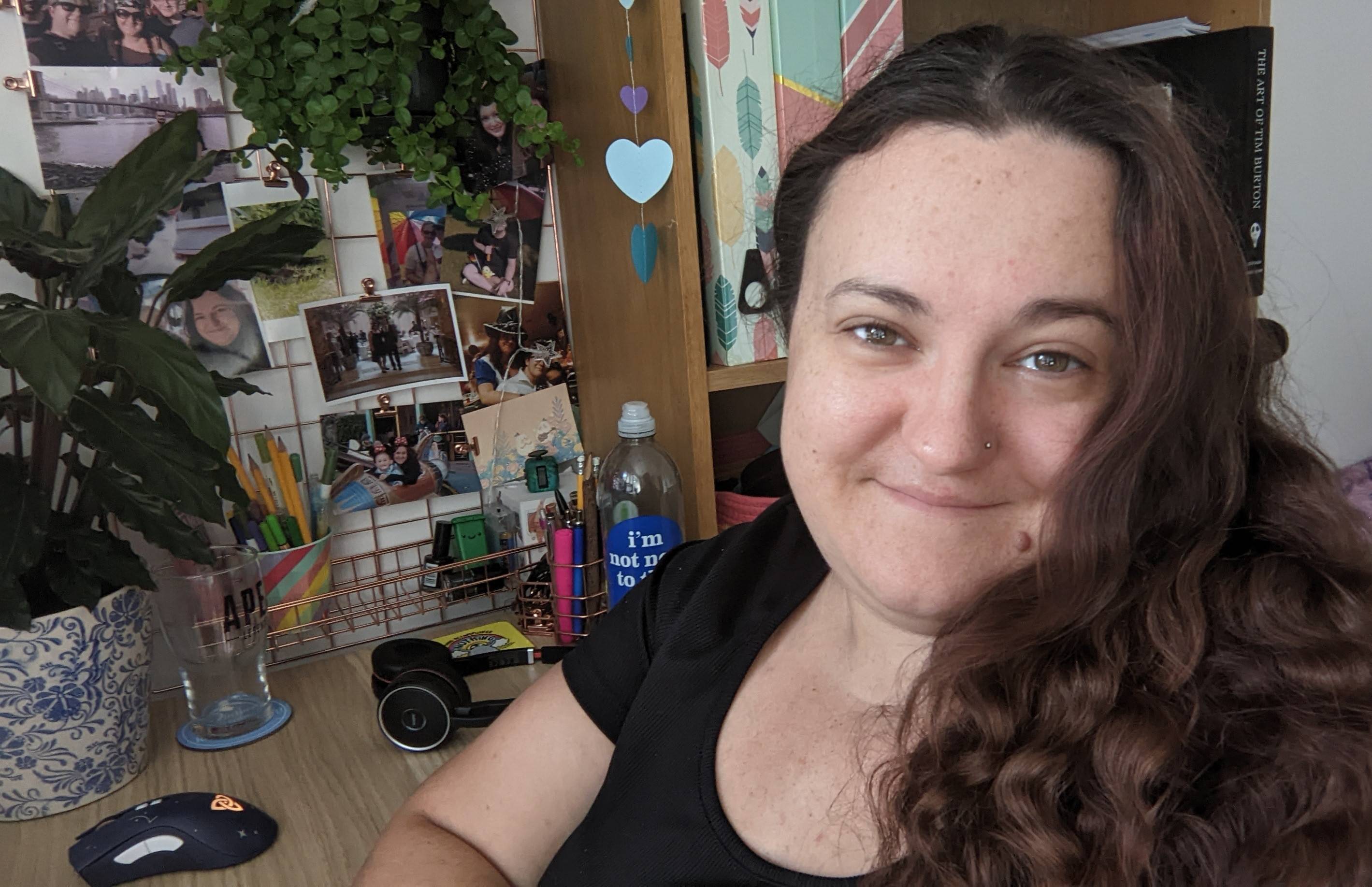
Opening Up: “Struggling With Mental Health Can Be One of the Loneliest Places to Be”
Interviews
"Struggling with mental health can be one of the loneliest places to be, we have an obligation to make sure people know they are not alone." Megan Hughes, Product Manager at HSBC discusses their journey with mental health and why it’s important to discuss mental health needs for the LGBTQ+ community.
Hi Megan, thanks for chatting to us. Can you tell us a bit about yourself?
My name is Megan, I’m a product manager, and the Bi+
Communities lead within Pride ERG at HSBC. In 2018 I was diagnosed with General
Anxiety Disorder (GAD), and since then have been passionate about breaking the
stigma of talking about mental health in the workplace.
This month is Mental Health Awareness Month, and we are emphasizing the need for open conversations around mental health. Why do you think it’s important to discuss mental health
in the workplace?
The more we talk about mental health, the more comfortable people can feel to open up. We all have periods of time when we experience bad mental health, and we spend so much of our time in the office that it's vital to be able to talk about it. Not feeling you can be open and keeping things bottled up can cause much more harm than good.
"
Do you think it’s important to talk specifically about
LGBTQ+ mental health?
The LGBTQ+ community is the most disproportionately affected
community when it comes to poor mental health. Anxiety, depression, imposter
syndrome and OCD (to name a few) can often stem from growing up feeling like
you need to hide a part of yourself. Attitudes have changed and come a long way
in the last 20+ years, but we still have a way to go. Each community within the LGBTQ+ umbrella face their own individual challenges, but mental health affects us
collectively, and it's important to shed light on the issue and offer each
other support.
What would you like to change in the workplace to make it
easier to discuss mental health?
HSBC has worked really hard over the last several years to support colleagues' mental health. COVID Lockdown brought about a huge change within the industry, with most employees working from home. One of the first things they did was reach out to colleagues to provide support and resources for anyone struggling with all of the changes. They addressed the issue head-on and have continued to keep up that momentum, increasing support covered by BUPA and offering free access to the Headspace app. I think that’s the one thing I’d like to see more of in workplaces, fiercely championing for your staff to look after themselves and offering multiple tools to help them.
"
Does an organization's approach to mental health change
the likelihood of you wanting to work there?
Yes, absolutely! Being your authentic self in the workplace
is the most important thing for me; it helps me be the most productive,
supports a healthy relationship to work and enables me to think outside the box
when tackling a work task. Most importantly, it removes the fear of being honest
with my team about how I’m feeling.
Do you think it’s still seen as “taboo” to discuss mental
health in the workplace?
I think ‘taboo’ is a little strong, but I’d say there’s still hesitancy to talk about it. My work has been nothing but supportive in giving me the opportunity to talk openly about my GAD. I hosted ‘Time to Talk Day’ within my team between 2018 and 2020, which specifically focuses on breaking the stigma of talking about mental health in the workplace. The more we talk about it, the more we embed the topic in general conversation at work.

Megan Hughes, Product Manager at HSBC
Have you ever been scared to ask for help? What would you say to someone who is feeling this right now?
I have always been someone who gets nervous easily, but in
2018 I went through an intense year, and I started having panic attacks,
although I didn't know that's what they were at the time. Admitting to myself
that something was wrong was the hardest part, and it was actually my manager
who came up to me one morning and asked how I was. I did the typical British
reply of 'Yeah, I'm fine,' and that's when my manager asked me again if I was
ok. That second time around twigged something in my brain to look inwards, I
realised I was not ok and that I'd been withdrawn and in survival mode for a
long time.
In terms of advice, I'd say the first step is to take a step
back and really think about how you're feeling. The most difficult first step
is being honest with yourself in realising something is not right. Then write
it all down so it's on paper, seek support and take that paper with you so you
don't have to worry about remembering everything.
What role do you think an LGBTQ+ network can play in
promoting discussions around mental health in the workplace?
One of the core principles at the heart of an LGBTQ+ network
is to help people know that they are not alone. Struggling with mental health
can be one of the loneliest places to be, we have an obligation to make sure
people know they are not alone and that staff have access to the support and
tools they need to help them. The more we create platforms to discuss it, the
more visibility we create and the more people we reach. The network also has
multiple methods of content, which I think is key. Some people don't feel
comfortable attending meetings or events; by offering multiple types of content
(written articles, recorded meetings, podcasts etc), we maximise our scope.

